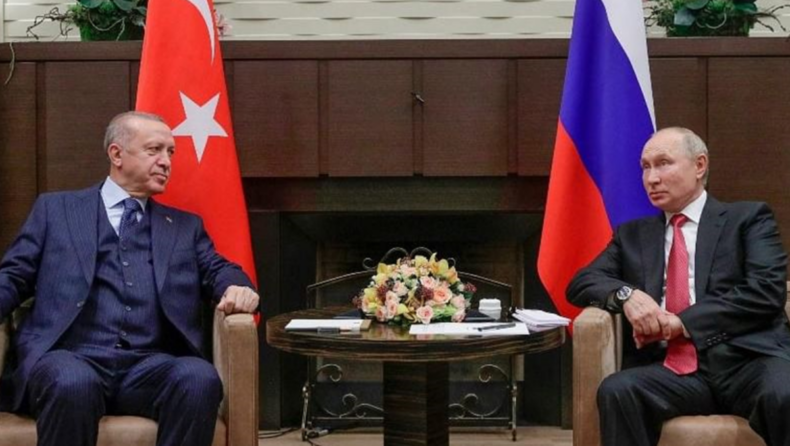
Beginning on July 19, Russian President Vladimir Putin will go to Iran with the goal of strengthening connections with major players in the area as part of Moscow’s challenge to the United States and Europe during its gruelling war in Ukraine.
The event has symbolic significance for Vladimir Putin‘s home audience as well, demonstrating Russia’s global influence even as it becomes more alone and escalates its conflict with the West.
Mr. Putin is scheduled to meet with the presidents of Turkey and Iran to discuss the pressing issues affecting the region, including the conflict in Syria and a U.N.-backed plan to resume exports of Ukrainian grain to ease the global food crisis. Mr. Putin’s trip will be his second since Russian tanks rolled into its neighbour in February.
Putin is trying to improve relations with Iran
Mr. Putin is attempting to strengthen ties with Tehran, a country that is also the subject of harsh U.S. sanctions and a possible military and trading ally, while the West slaps sanctions on Russia and the expensive campaign grinds on. The White House claims that Russian officials visited an airport in central Iran at least twice in recent weeks to examine Tehran’s drones that may carry weapons for potential deployment in Ukraine.
The opportunity for a vital meeting with Mr. Erdogan, who has worked to facilitate talks on a peaceful resolution to the Russia-Ukraine conflict and talks to open the Black Sea to Ukrainian grain, is provided by Tehran, maybe more than anything else.
Turkey has had severe clashes with Russia in Azerbaijan, Libya, and Syria
NATO member Turkey has found itself in violent confrontations with Russia in Azerbaijan, Libya, and Syria. Turkey, on the other hand, has not placed sanctions on the Kremlin, making it a crucial ally for Moscow. In addition to dealing with out-of-control inflation and a rapidly appreciating currency, Turkey relies on the Russian market.
The event has symbolic significance for Mr. Putin’s home audience as well, demonstrating Russia’s global influence even as it becomes more alone and escalates its conflict with the West. It happened shortly after U.S. Vice President Joe Biden visited Israel and Saudi Arabia, Tehran’s main regional competitors.
Mr. Biden encouraged Israel and Arab nations to counter Russian, Chinese, and Iranian influence that has grown with the impression of America’s withdrawal from the area from Jerusalem to Jeddah.
Former President Donald Trump backed out of Tehran’s nuclear deal with world countries
Selling was difficult. Given the Russian presence in Syria, Israel’s north-eastern neighbour and a regular target of its bombings, it is imperative for Israel to preserve strong ties with Mr. Putin. The oil alliance between Saudi Arabia, the United Arab Emirates and Moscow has so far allowed no more oil production beyond that.
To oppose Iran, which has swiftly advanced its nuclear programme since former President Donald Trump abandoned Tehran’s nuclear agreement with the international powers and reimposed crippling sanctions, all the nations might commit to close relations despite their long-standing conflicts.
Talks to revive the agreement have come to a standstill. Mr. Biden stated during his visit that, as a last option, he would be open to using military force against Iran.
Iran considers Russia to be its “most essential partner”

Iranian Foreign Minister Hossein Amirabdollahian stated on Twitter that “Iran is (the) centre of active diplomacy,” adding that the meetings will “expand economic cooperation, focus on security of the area via political settlement… and secure food security.”
According to Fadahossein Maleki, a member of the prominent national security and foreign policy committee of the Iranian parliament, Russia is Iran’s “most important partner.” His remarks belied the long-standing hostility that had resulted from Russia’s occupation of Iran during World War II and its subsequent unwillingness to withdraw.
At a briefing on Monday, Yuri Ushakov, Mr. Putin’s foreign policy advisor, referred to Iran as “an essential partner for Russia,” noting that both nations shared “a desire to move their relations to a new level of strategic partnership.”
The meeting’s central issue is Syria’s ongoing turmoil
Mr. Ushakov said that on Mr. Putin’s fifth trip to Tehran, he will meet with Iran’s Supreme Leader, Ayatollah Ali Khamenei, with whom he has a “trusting dialogue.” He will also speak with President Raisi on matters such as the Iran nuclear agreement, which Russia is a major signatory to. The presidents met twice, once in Turkmenistan last month and once in Moscow in January.
The three presidents’ discussions will centre on the ongoing crisis in Syria, which has lasted for ten years and in which Turkey has supported armed opposition groups while Iran and Russia have supported President Bashar Assad’s regime. In 2015, Russia entered the battle, joining forces with Iranian and Hezbollah terrorists in Lebanon and deploying its air power to support Mr. Assad’s inexperienced troops and ultimately tip the balance in his favour.
The action is a component of Turkey’s intention to establish a safe zone along its border with Syria in order to promote the voluntary repatriation of Syrian refugees.
The meeting between Mr. Putin and Mr. Erdogan on Tuesday would help remove the remaining barriers, which would be a significant step toward easing the food crisis that has driven up the cost of essential commodities like wheat and barley.













